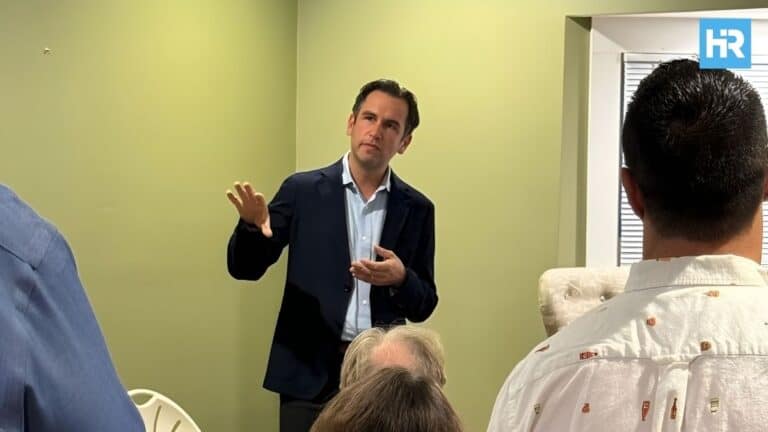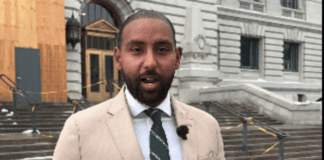
Jersey City Mayor Steve Fulop’s decision to fire police officers for using legal marijuana while off duty has sparked a messy legal fight and political controversy.
Some are accusing him of using this weed policy as a “ruse” to boost his upcoming run for governor in 2025, leading to serious legal challenges and growing backlash.
- Mayor Steve Fulop is accused of firing police officers for using marijuana off-duty to gain attention for his 2025 gubernatorial campaign, and it’s led to lawsuits and fines.
- The debate centers on New Jersey’s law allowing off-duty marijuana use by cops, which clashes with federal laws that ban marijuana users from owning guns.
- Jersey City faces fines, lawsuits, and rising legal fees, increasing tensions between city officials, the police force, and the state.
Is Fulop’s Weed Policy a Political Stunt?
Attorney Michael Rubas has filed a lawsuit on behalf of several police officers, claiming that Mayor Fulop is using the city’s marijuana policy to gain political attention.
Rubas argues that Fulop’s actions are all about boosting his 2025 campaign for governor at the expense of Jersey City employees and taxpayers.
As a result, the city is now dealing with expensive back-pay awards and lawyer fees.
Despite state law allowing off-duty police officers to use legal marijuana, Jersey City officials have continued to fire or suspend officers who test positive for cannabis.
And Rubas claims this goes against state law and serves no purpose other than furthering Fulop’s political ambitions.
The Legal Conflict: State vs. Federal Law on Marijuana Use
The root of the issue is a conflict between state and federal law. New Jersey law, signed by Governor Phil Murphy in 2021, legalized recreational marijuana use, including for off-duty police officers.
A 2022 memo from Attorney General Matt Platkin confirmed that police officers shouldn’t be disciplined for using legal marijuana when off duty.
However, Jersey City’s public safety director, James Shea, argued that this policy conflicts with federal law, which bans marijuana users from owning guns or ammo.
Backed by Mayor Fulop, Shea’s stance led to the firing of several police officers, including Mackenzie Reilly, Norhan Mansour, and Omar Polanco, after they tested positive for marijuana.
Even though the city has lost multiple legal battles, including orders from the state Civil Service Commission to reinstate the fired officers, Jersey City has refused to back down. Consequently, the state has imposed daily fines for not rehiring the officers.
The Financial and Ethical Fallout
The ongoing legal battle is hitting Jersey City hard financially. The state Civil Service Commission has started fining the city $100 per day for each officer it hasn’t rehired, with the total fines possibly reaching $20,000.
These fines add to the mounting costs of legal fees and back pay, which could cost the city hundreds of thousands of dollars.
Rubas’s lawsuit also alleges that Jersey City officials knowingly broke the law. During a call with the Attorney General’s Office, they were told that they couldn’t discipline officers for using legal marijuana.
Despite this, the city continued with its “unlawful policy,” leading to the current legal mess.
In one email exchange revealed in the lawsuit, Mayor Fulop seemingly acknowledged the political motivation behind the policy.
Just days after announcing the city’s stance against marijuana use by police officers, Fulop received an email from a political operative.
His response—“Little revolt we started”—has been criticized as “flippant,” adding to the accusations of political gamesmanship.
Wrapping It Up: Politics, Law, and Cannabis
What’s happening in Jersey City is more than a local issue; it’s part of a bigger debate over how state and federal laws should work together, changing attitudes toward cannabis, and how politics can influence law enforcement.
As Mayor Fulop continues his campaign for governor, these legal battles will likely stay in the spotlight, possibly affecting the officers involved and the political scene in New Jersey.
How these cases turn out could shape how cannabis use is handled in police departments, not just in New Jersey but possibly across the country.









